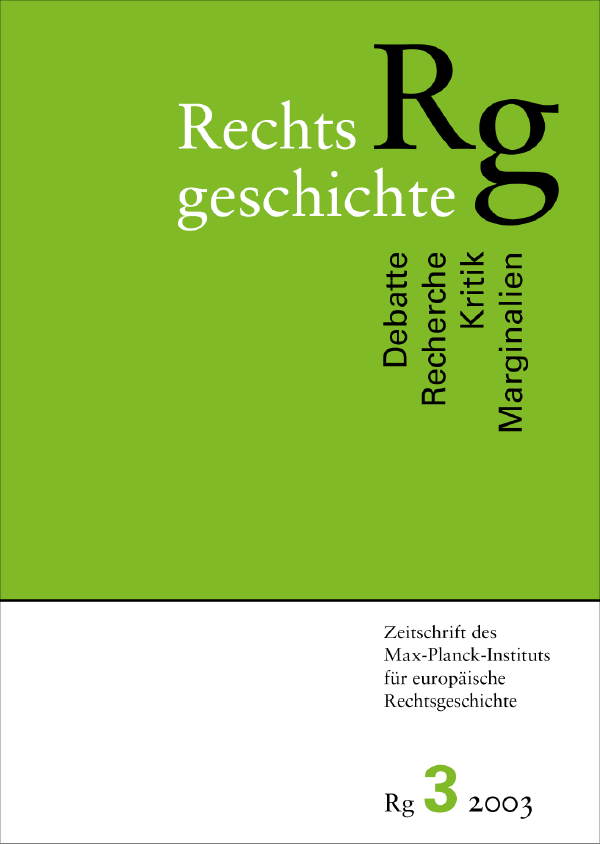Wozu Rechtsgeschichte?
Von Nutzen und Nachteilen, Gewinnspielen und Problemgeschichten
DOI:
https://doi.org/10.12946/rg03/058-065Abstract
»Why legal history?« There is no general scientific answer, as usefulness is always concrete and practical. General clauses are illusions. So what do we do? As a good marketing effort today is always useful, let’s assume we make use of complex sweepstakes. They must be simple, constructive and attractive. Then they produce satisfaction with the product among participants, joy with the producer about the brand loyalty and a good distribution of the product itself – like the very successful sweepstakes of »Bild«, ADAC, Readers Digest etc. But seriously: What would constitute a good sweepstake on the market of legal history? So much is »out« already…, the »inner necessity«, the »eternal« Roman law, the »German« unswerving faith with oneself, the hop-skip-andjump from Roman law over Savigny towards the BGB of yesterday and today, the history of legal etymology and dogmatics, the hermeneutic circling, the return of one and the same legal types on the carrousel of law, the eternally critical view on law – and so on. They are out not without reason, because they are too mystic, too eternal, too pseudo-Roman, too doctrinal, too circular, too metaphorical, too socially logical, or just too arbitrary. My suggestion: »Stories of legal problems«. They interpret and represent norms based on vast amounts of decisions of certain problems under certain conditions. If there is a certain identity of problems, the history of problems can link the various solutions in a thrilling way. If the identity is missing, the threads are cut. One doesn’t step into the old traps but neither into chaos said to be impeding. A genuine sweepstake.
Downloads
Published
How to Cite
Issue
Section
License
Copyright (c) 2003 Author

This work is licensed under a Creative Commons Attribution-NonCommercial-NoDerivatives 3.0 Unported License.





